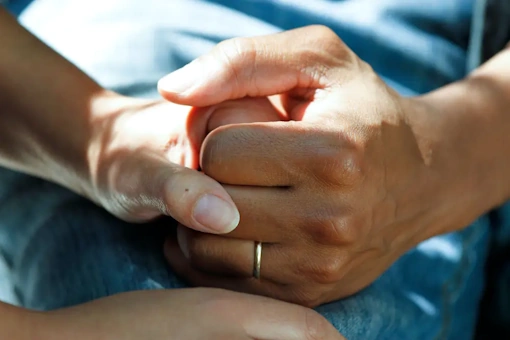Considering the legal rights of unmarried couples can be tricky to broach, especially if you have no intention of parting ways with your partner. However, unforeseen circumstances can sometimes get in the way of life, whether this is a breakup, a death, or something else.
This issue has become more prominent in recent years; as increased numbers of couples start to cohabit, more people believe the misconception that living together establishes rights similar to those of marriage. However, our family law specialists are here to stamp out this common law marriage myth and provide you with the essential information you need in these difficult times.
Do Unmarried Couples Have Financial Rights?
We know it’s challenging to keep your finances at the front of your mind when dealing with a stressful, complex, or heart-breaking period of your life. However, if a breakup or death does occur, you need to know where you stand so that you can be best supported and prepared in this difficult process.
Here at Newtons Solicitors, we provide clients with the information and guidance they need to become aware of their finances when they need to fall back on them.
-
Legal Rights of Unmarried Couples if One Dies
Unfortunately, the legal rights of unmarried couples living together remain limited regarding financial security. There is no financial security on the death of a partner, even if the couple lived together and had children.
This means that if Partner A depended on Partner B’s salary, and Partner B then passed away, the children would be automatic beneficiaries from their deceased parent, though the surviving parent would not. Cases such as these highlight the vital importance of creating a will to ensure your wishes are carried out.
In a scenario where the deceased partner has not finalised a divorce with an ex-spouse, the surviving partner may have to fight against the ex-spouse for entitlement to assets and possessions.
Indeed, to claim any benefit from a deceased partner’s estate, the surviving partner would have to make a claim through the Inheritance Act. You are only eligible to utilise this act if you have lived with your partner for two years or more, but the claim doesn’t guarantee that you’ll gain any benefit.
-
Unmarried Couples and Pension Rights
The rights of unmarried couples regarding pensions will depend on the rules and regulations of each particular scheme. The majority of pension schemes give benefits to children, while some will provide help to partners, too.
A personal pension scheme can offer cover to whomever the member chooses as long as they can pay pension fund contributions. The member can fill out a Letter of Wishes form to state to whom they want benefits to be given when they pass. This document enables members to benefit their partner even if they are not married.
-
Financial Support for Unmarried Couples
During the relationship, if a couple lives together and decides to claim a means-tested benefit, they may be able to access Income Support, Universal Credit, and Support Allowances, amongst other means of support.
The legal rights for unmarried couples in the event of a break-up are fairly restricted since neither partner is obliged to support the other one financially, meaning that in the event of a breakup, you cannot claim maintenance payments from your ex-partner. However, if a couple has any children, then the resident parent (the one whom the children live with most of the time) can apply for child maintenance regardless of the couple’s marital status.
-
What is Parental Responsibility?
Parental responsibility refers to the legal rights a parent has regarding their children, such as any medical or education decisions.
Unfortunately for unmarried fathers, this is another area where the legal rights of unmarried couples are somewhat diminished, as only the mother gets the automatic parental responsibility when it comes to children. Unmarried fathers are able to gain this responsibility if they jointly register the child’s birth, which they can do by placing their name along with the mother’s name on the birth certificate.
Without doing this, if the child’s mother unexpectedly passes away, the child will not automatically be under the responsibility of their father. This scenario creates extra complexity in an already challenging time.
Aside from jointly registering the child’s birth, the father could also complete a statutory declaration of parentage or go to court to gain parental responsibility.
-
Unmarried Couples and Property Rights
The legal rights of unmarried couples living together can be relatively complex regarding property and possessions.
Let’s delve into more detail about different housing scenarios if you have been cohabiting as an unmarried partner.
Occupiers:
Your rights may vary when it comes to occupying your home depending on what kind of owner you are. If you happen to be the sole owner of the home you and your partner cohabitated in, you have the legal right to stay in your home. However, in a breakup, your ex-partner could claim a beneficial interest in it.
If your partner was the sole homeowner, you have no rights concerning the property, although you may be able to establish an interest based on the circumstances. If not, you could be forced out of the home, meaning you must be prepared to find an alternative roof over your head.
Tenancies:
The legal rights for unmarried couples can vary if they cohabit as tenants, depending on their tenancy status and whom they rent from.
You will typically have no rights to stay in the property if you are the cohabiting partner of a sole tenant. Thus, we recommend you live together as joint tenants, giving you equal legal rights if you were to break up. As an unmarried partner, you could potentially go to Court to secure some temporary or even long-term rights regarding tenancy.
To sum up, the rights of unmarried couples remain limited compared to those who have decided to tie the knot. It’s critical to be able to access the support of an experienced team of solicitors you can trust to establish protections for cohabiting couples.
Our experienced team of wills, trusts and probate solicitors can help introduce clients to the process of making a will, allowing them to leave anything they might like to their unmarried partner and minimising the risk of any unwanted disputes in the event of their passing.
If you would like to discuss your options, gather advice or instruct one of our expert cohabitation law solicitors, please get in touch today.


